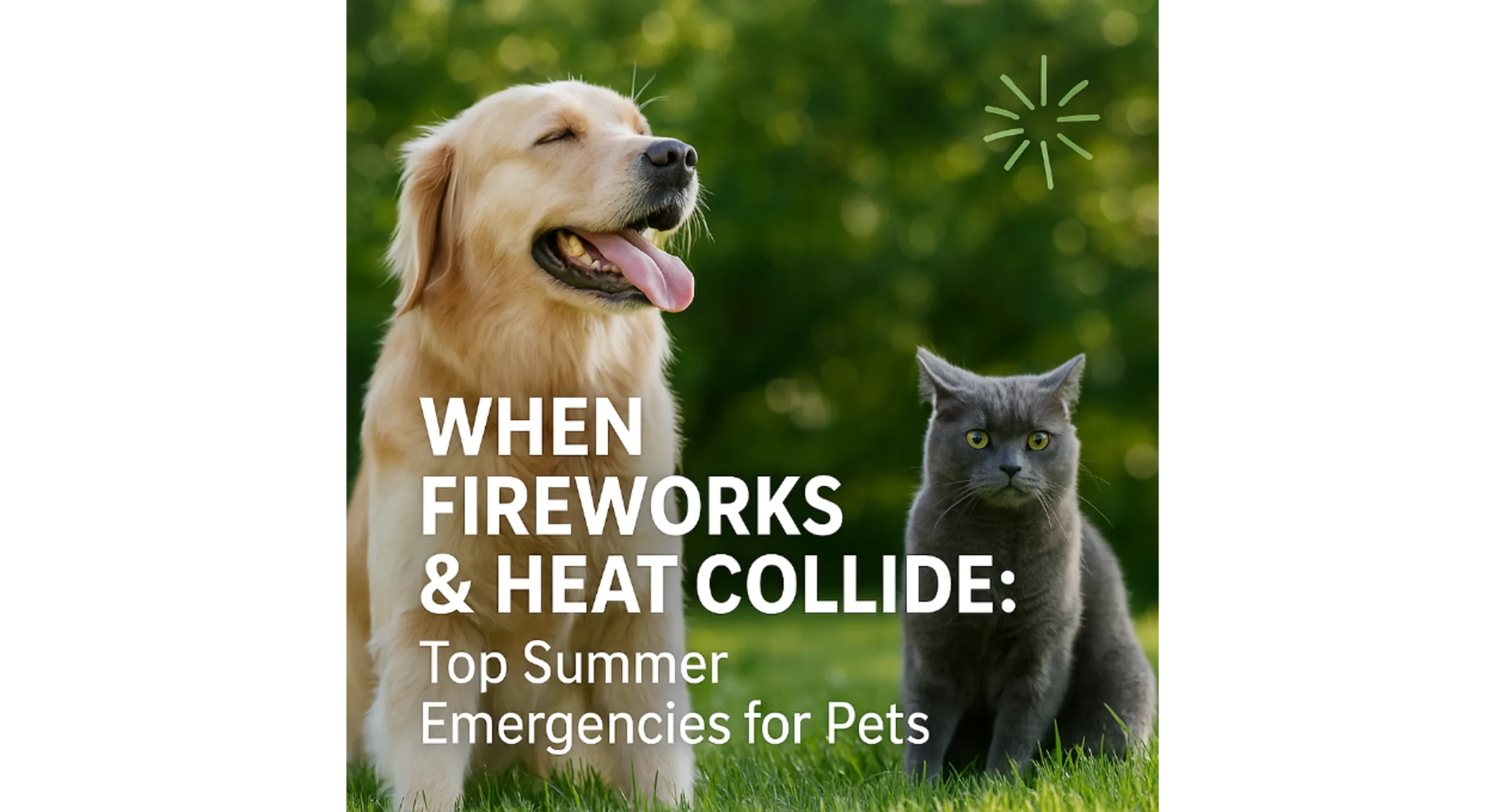When Fireworks & Heat Collide: Top Summer Emergencies for Pets
Pet Safety

Summer in Massachusetts brings sunshine, celebrations, and unfortunately, emergency visits for pets. At Bulger Veterinary Hospital in Lawrence, we see a noticeable rise in heat-related conditions and stress-induced injuries this time of year, especially around the Fourth of July. As temperatures climb and fireworks light up the sky, it's important for pet owners to know the risks and how to protect their furry family members.
1. Heatstroke: A Life-Threatening Emergency
Heatstroke is one of the most urgent and preventable conditions we treat during summer. Dogs and cats can overheat quickly, especially brachycephalic (short-nosed) breeds like Bulldogs, Pugs, and Persians.
Signs of heatstroke in pets:
Excessive panting or drooling
Lethargy or weakness
Vomiting or diarrhea
Bright red gums or tongue
Collapse or seizures
What to do:
Move your pet to a shaded or cool area immediately. Offer small amounts of cool (not cold) water and use lukewarm, damp towels to help cool their body. Call us right away at Bulger Veterinary Hospital and head to the ER. Time is critical.
Prevent it by:
Limiting walks to early morning or late evening
Never leaving pets in parked cars (even for a minute)
Making sure fresh water and shade are always available
2. Firework Fright and Anxiety
While fireworks are fun for us, they can be terrifying for pets. Loud noises, bright flashes, and unfamiliar smells can lead to stress-related behaviors, including:
Pacing or shaking
Hiding or trying to escape
Vocalizing or excessive barking
Accidents in the house
Destructive behavior
Each year, we see pets injured while trying to flee during fireworks, from scraped paws to more serious injuries like broken bones or being hit by a car.
How to help your pet cope:
Keep them indoors in a secure, quiet room
Use white noise or calming music
Talk to your veterinarian about anti-anxiety medications or calming supplements
Microchip your pet and ensure tags are up to date, just in case
3. Burns and BBQ Mishaps
Grilling is a summer favorite, but pets are curious, and grills, coals, and skewers can pose real dangers. We’ve treated pets for burns from hot grills, pancreatitis from greasy leftovers, and foreign body obstructions from eating corn cobs, skewers, or bones.
Keep your pet safe by:
Keeping pets away from grills and fire pits
Never giving cooked bones or fatty table scraps
Watching closely during gatherings and cleaning up promptly
4. Bee Stings, Bug Bites, and Allergic Reactions
Just like humans, pets can be allergic to insect stings or bites. A sudden swollen face, hives, or difficulty breathing could indicate a serious reaction.
What to watch for:
Swelling around the face or muzzle
Pawing at the face
Difficulty breathing
Vomiting or collapse
If you notice any of these symptoms, seek veterinary attention at our ER right away.
